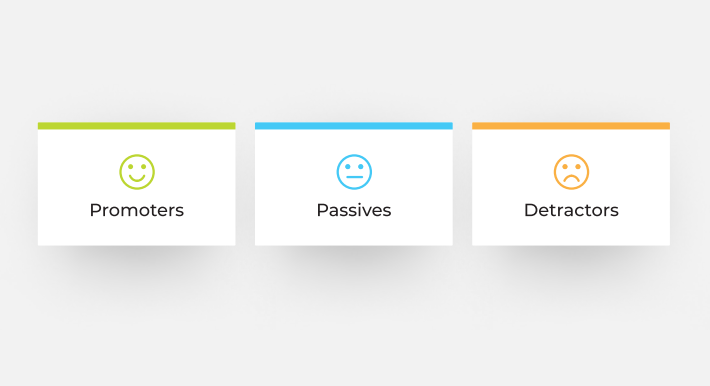You’ve developed a great team, set achievable targets and have all the necessary infrastructure in place. As a result, your business should be humming... but something seems to be holding it back.
"The biggest fountain of knowledge is usually one you should be very familiar with - your customers"
Even if you’re seemingly doing everything right, your customers can tell you what you could be doing even better and ultimately, what’s holding them back from becoming your biggest cheerleaders.
This is where a Net Promoter Score (or NPS, for short) can help. It’s a simple and invaluable metric which gives you insight into how your customers feel about you. Here’s what you need to know…
Is your business truly customer-centric? Request a demo with Customer Radar to find out.
What is NPS?
NPS defined - Net Promoter Score is an uncomplicated customer experience metric that is now used by millions of businesses worldwide to measure and track customer perceptions. NPS allows you to continually shape customer experience (and your product or service) to meet and exceed customer expectations.
How does it work?
Your customers are asked one deceivingly simple question - “How likely are you to recommend us to your family and friends?”. The customer rates their experience on a scale of 0-10.

Promoters - These are your brand fans. They’re likely to promote your business to family, friends and maybe even their wider social media contacts. Personal recommendations are powerful growth tools for your business and promoters are great at this.
Passives - Generally satisfied, but fairly indifferent. Passives typically lack loyalty and are easily swayed to competitors. They might, however, just need a nudge to turn them into passionate promoters.
Detractors - A.k.a. your unhappy lot. They can damage your brand by spreading the word of their negative experience. With the growing use of social media, this can quickly snowball. It’s important to act fast and fix issues as they arise. Done right, rectifying a detractor’s negative experience could even turn them into a promoter.
How to calculate your businesses NPS - Simply subtract the percentage of Detractors from the percentage of Promoters - voila! That’s your NPS score.
Why it’s important to know your NPS
Your NPS is your ‘magic number’. Knowing it will help you benchmark your business’ improvement, as well as compare how you sit amongst competitors. On a granular level, listening to the voice of your customer in real-time allows you to tune in to their needs and wants. Your overall magic number can be broken down regionally, by team, by store so you can provide a consistent customer experience no matter where you’re interacting with them. You instantly gain insight into what’s going to provide real ROI to your business.
How to use your NPS effectively
The key to using NPS effectively: actually do something with it. Seems obvious, right?
Using the data can fuel and shape marketing strategies, customer experience best practices and guide new product development, all the while ensuring your business is truly customer-centric.
Use the data to fix the areas of your business that need improvement, highlighted by the detractors. Just as importantly, use the data to reward your customers and keep them loyal!
Additionally, you can use the score to empower employees to make a real difference in customer experience and gauge customer responses to changes in your business. Or perhaps give them some much-needed feedback when things aren’t going well.
Ultimately, NPS is so much more than a customer experience metric. Putting this at the heart of your business allows you to genuinely be in tune with your biggest asset. Your customers.
Want to get even more from your NPS data?
NPS data is limited in the sense that it doesn’t give you the ‘why’ of the score. At Customer Radar, once the customer provides their NPS score, they’re then asked to explain why they rated the way they did. Customer Radar then groups the data to make the feedback easy, actionable and insightful for the business. Also, if NPS is not supported as part of a wider voice of customer programme, then it can just end up being a metric that doesn't carry much weight in a practical sense.
Is your business truly customer-centric? Request a demo with Customer Radar to find out.






